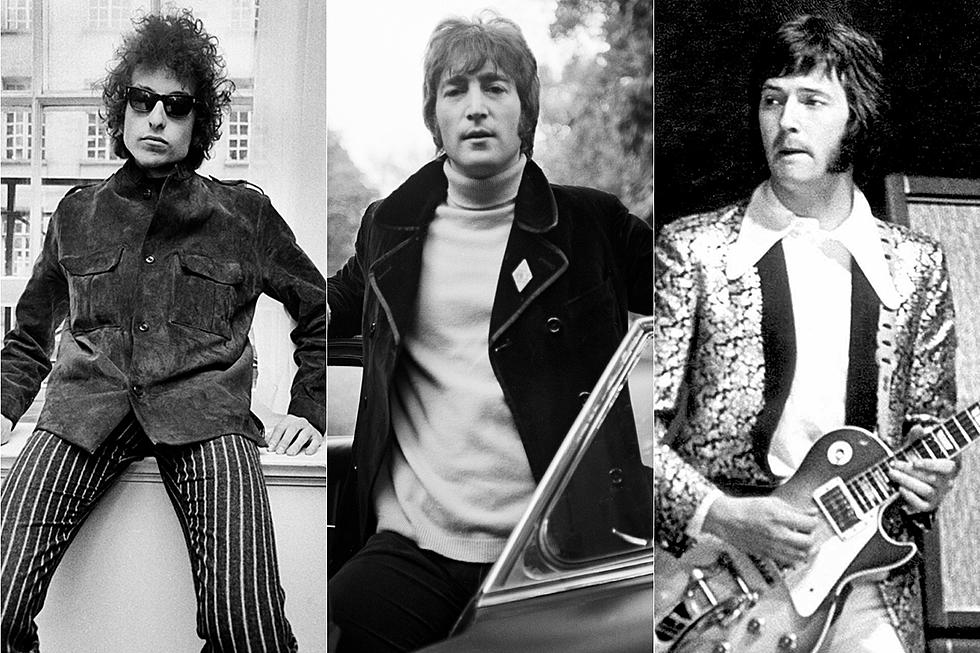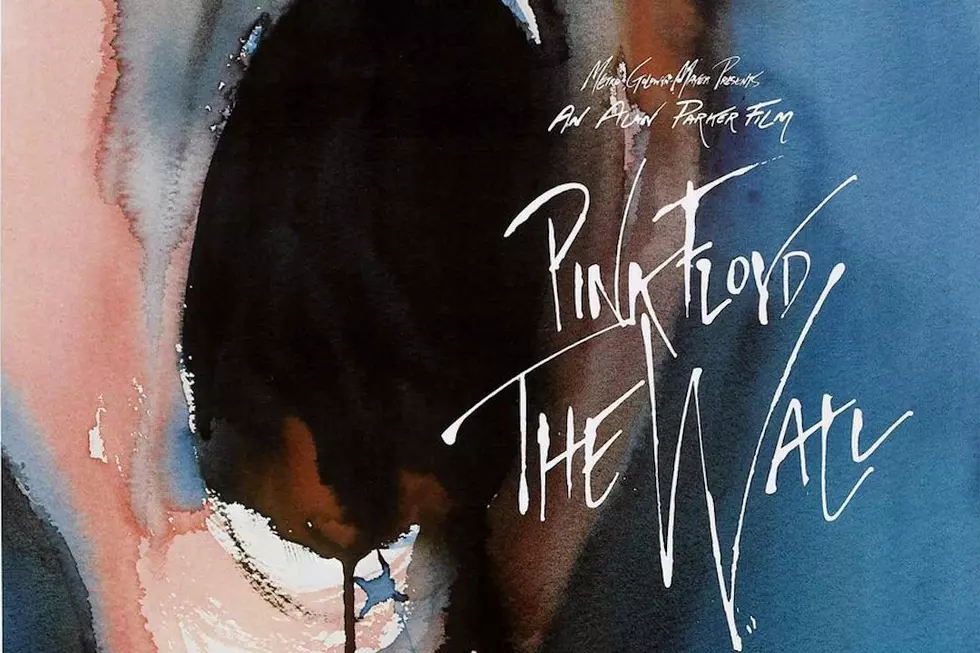
July 29, 1966, Marked New Eras for Bob Dylan, the Beatles and Cream
On July 29, 1966, the personal and professional trajectories of three of rock's most notable names shifted — some for the worse, some for the better.
The day spelled misfortune for two of them: Bob Dylan, who crashed his motorcycle just outside Woodstock, N.Y., and subsequently disappeared from the public eye for several months, and John Lennon, whose "more popular than Jesus" comment landed in the U.S. Both proved to be events that inevitably altered the course of the artists' careers.
Across the pond, however, the news wasn't as bad: Eric Clapton, Jack Bruce and Ginger Baker debuted their band Cream in a small British club, setting the stage for a brief but powerful two years of music.
To this day, details of Dylan's accident, which occurred just weeks after the release of the acclaimed Blonde on Blonde, remain a mystery. The alleged incident took place as the singer-songwriter was riding his motorcycle home after visiting his manager when he lost control. His wife was following behind, but there's no official record of the crash. In the following months, during which Dylan was not seen or heard from, his well-known habit of stretching the truth to the point of fiction only bolstered rumors that he had either died or faked the entire incident. Dylan has never clarified the matter.
Listen to Bob Dylan's 'Leopard-Skin Pill-Box Hat'
“I had been in a motorcycle accident and I’d been hurt, but I recovered,” Dylan wrote in his 2004 autobiography, Chronicles: Volume One. “Truth was that I wanted to get out of the rat race. Having children changed my life and segregated me from just about everybody and everything that was going on. Outside of my family, nothing held any real interest for me and I was seeing everything through different glasses.”
The event nevertheless marked a turning point in Dylan's career that was reflected in his music, which took a turn toward the semi-acoustic, folk- and country-inspired style of 1967's John Wesley Harding and 1969's Nashville Skyline. It would be another eight years before he'd return to touring, but the period of seclusion may have been just what Dylan needed to focus on the next chapter of his life and work.
Similarly, Lennon also faced a new era, one that would alter many Beatles fans' perceptions of him. A few months earlier, in March 1966, an article printed in the London Evening Standard included a quote by Lennon discussing the band's continuing popularity: "Christianity will go. It will vanish and shrink. I needn't argue about that. I'm right and I'll be proved right. We're more popular than Jesus now. I don't know which will go first, rock 'n' roll or Christianity. Jesus was all right, but his disciples were thick and ordinary. It's them twisting it that ruins it for me."
At the time, the quote prompted little response. But on July 29, 1966, it was reprinted by the U.S. teen mag Datebook and controversy immediately erupted. Over the next few weeks, there were protests, death threats and boycotts of Beatles music across the nation.
Listen to the Beatles' 'Rain'
Still, that didn't quite feel like a singular event but rather a tipping of the scales. The quote arrived between the releases of Rubber Soul and Revolver, between "Nowhere Man," one of the first Beatles songs to abandon the topic of romance and feature Lennon's more philosophical lyricism, and "Rain," a track that included an abundance of studio manipulation. The Beatles had already started inching away from their cute and boyish images and toward a more experimental attitude. Lennon's now famous quote sealed the deal.
But July 29, 1966, was also a day for fresh starts. At the Twisted Wheel Club in Manchester, Clapton, Bruce and Baker - all esteemed members of the British electric blues scene - made their live debut as Cream.
Listen to Cream's 'I Feel Free'
"The club," Clapton recalled in Clapton: The Autobiography, "was pretty quiet that night, as we were a last-minute unannounced addition to the bill. The show, consisting of predominantly blues covers like 'Spoonful,' 'Crossroads' and 'I'm So Glad,' was merely a warm-up for the real debut that [manager Robert] Stigwood had planned for us, two nights later, at the sixth National Jazz and Blues Festival at Windsor Racecourse."
This kicked off the short-lived but vigorous tenure of rock's first supergroup, which released four celebrated albums over the next couple of years.
Rockers Who Defied Death
More From Sasquatch 92.1 FM










